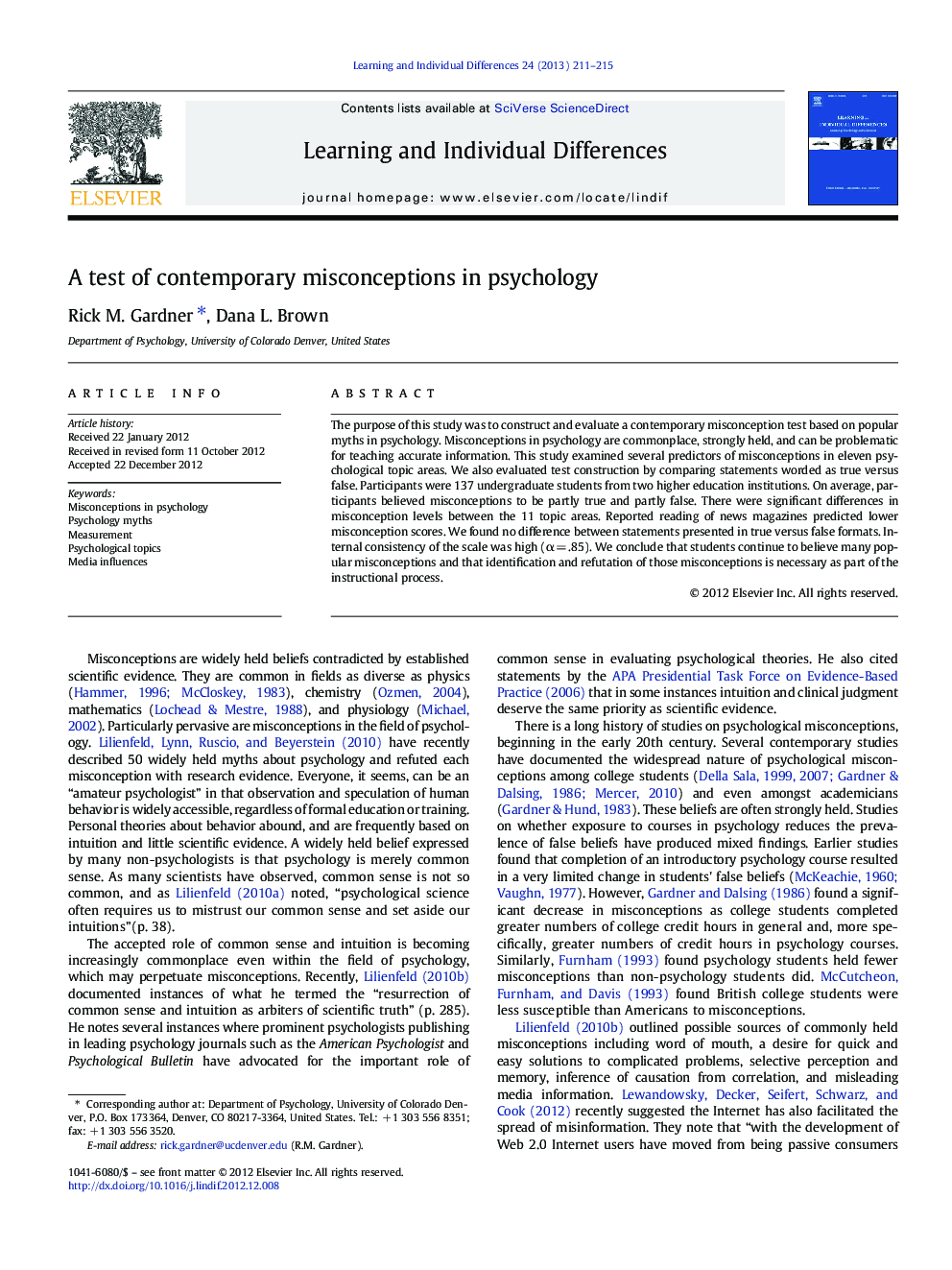| Article ID | Journal | Published Year | Pages | File Type |
|---|---|---|---|---|
| 364931 | Learning and Individual Differences | 2013 | 5 Pages |
The purpose of this study was to construct and evaluate a contemporary misconception test based on popular myths in psychology. Misconceptions in psychology are commonplace, strongly held, and can be problematic for teaching accurate information. This study examined several predictors of misconceptions in eleven psychological topic areas. We also evaluated test construction by comparing statements worded as true versus false. Participants were 137 undergraduate students from two higher education institutions. On average, participants believed misconceptions to be partly true and partly false. There were significant differences in misconception levels between the 11 topic areas. Reported reading of news magazines predicted lower misconception scores. We found no difference between statements presented in true versus false formats. Internal consistency of the scale was high (α = .85). We conclude that students continue to believe many popular misconceptions and that identification and refutation of those misconceptions is necessary as part of the instructional process.
► We constructed a contemporary misconception test using popular myths in psychology. ► Most college students believe the myths to be partly true and partly false. ► There were no differences in misconception levels between eleven topic areas. ► Reading of news magazines predicted lower misconception scores. ► Misconception levels were the same for statements presented as true or false.
